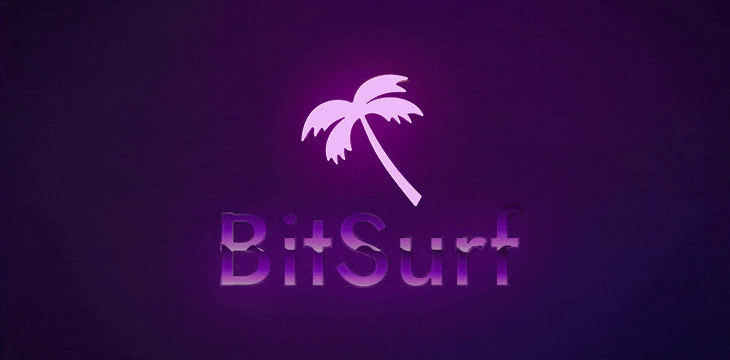|
Getting your Trinity Audio player ready...
|
BitSurf relaunched as its own independent social network on May 1. The platform is very different from the original social application, which was bootstrapped as an alternative Twetch client. I caught up with the creator of BitSurf, Preston Brown, to understand how BitSurf has evolved.
What was the motivation behind making BitSurf its own independent social network?
Our chief motivation was the freedom and flexibility to nurture and develop our own unique concepts. Tethering our platform to existing systems would have required us to constantly adapt and play catch up. However, by establishing BitSurf as an independent social network, we’ve been able to iterate and evolve our ideas more freely. That said, we’re still interested in integrating with other platforms and unifying diverse feeds, and we view our independent platform as a sturdy foundation for these future endeavors.
Currently, no social interactions (posts, follows) are put on chain. Will this change in the future? Why or why not?
We see the broad scope of cross-posting as encompassing the capacity for users to post their content on chain. In the context of social media, redundancy is a beneficial feature. By allowing on-chain posting, we assure our users of data availability in the public sphere. It’s a form of insurance for their content that aligns with our commitment to open and robust social interaction.
Why are there no likes or tipping on the platform?
Our platform incorporates a form of “likes” through the favorite’s galaxy, the default space for users to accumulate their preferred content. Some users have even chosen to create a separate “likes” galaxy for a similar purpose. Moreover, we track the number of galaxies a post has been added to, which provides us with an enriched perspective on post interactions, encompassing more than just traditional “likes.” We are exploring options to allow users to tip on the platform, as this is an important feature. This is an evolving discussion as new tools and services become available for us to use potentially.
You mentioned in private that you are interested in the Open Social Protocols. How would you implement these on BitSurf?
In an ideal scenario, a BitSurf account seamlessly integrates with various types of accounts or signature types. Our aspiration is to facilitate user interaction across multiple platforms, enabling users to export, import, and cross-post between our site and others. This implementation is aligned with our broader vision for a diverse and interconnected social networking landscape.
Why charge a recurring subscription for additional feature access? How did the implementation of Twitter Blue impact this?
Our primary objective with BitSurf is to cultivate a sustainable business model. As a web application, we operate as a service in many respects, and our pricing model reflects this through a subscription-based system. Many social media achieve recurring revenue from advertising, which is something we are trying to avoid upholding the integrity and trust in our platform.
Twitter Blue was released during the development of our pro subscription features, which served as a validation of our chosen path. Unlike many social media platforms that rely heavily on advertising, we believe that such a model can create detrimental incentives, particularly regarding user experience, trust, moderation, and recommendation algorithms.
How do you envision users creating and curating Galaxies?
The potential of this feature is truly exhilarating. Galaxies are the primary method of accessing our recommendations algorithm, and we intend to focus our future development efforts around this. The ultimate goal of galaxies is to act as a repository or a model for an agent/recommendation algorithm.
Users can organize posts into galaxies based on their preferences, and the galaxies can then be used to discover similar content. This shifts the paradigm from other social media sites, which often rely on opaque and potentially biased recommendation algorithms, to a more user-driven and transparent model.
Please elaborate on why you added AI features to the platform, such as a ChatGPT bot and Stable Diffusion.
Our AI features, such as ChatGPT and Stable Diffusion, represent a new digital content creation and interaction era. We’re committed to providing our users with access to cutting-edge tools and empowering them to create and innovate in unprecedented ways.
By integrating AI technologies, we’re pioneering the path forward and shaping the technological landscape. We believe that AI is a game-changer in the realm of user experience and want our users to be at the forefront of this evolution.
How did you come up with the idea of binding themes to NFTs?
The inception of binding themes to NFTs was a meme discussion about the utility of NFTs on Twitter. This conversation evolved into a broader dialogue, where we identified that token spaces/themes could introduce an innovative, immediate utility to tokens. This led us to begin developing this feature.
Besides private chat, how can owners of Token Spaces create value for their members?
We believe that the creativity of the founders will drive the creation of value within Token Spaces. One of the fascinating elements of the NFT space is the reliance on non-token-based social organizations. For instance, when Gorilla DAO became a trend, there was a rush to create a cohesive chat system. With BitSurf, we’ve embedded this functionality into our platform—every token automatically generates a Token Space, allowing token holders to access a token-based private chat on our site immediately upon minting.
How will BitSurf uniquely recommend content that does not infringe on users’ privacy rights while protecting the integrity of their data?
The current approach to algorithmic recommendations in many companies is deeply flawed, largely due to their dependence on advertising models. This often leads to extensive tracking of users’ online activities, a practice that most users are unaware of and generally disapprove of. Instead of attempting to analyze user behavior based on these potentially misleading metrics, we aim to provide explicit tools that allow users to communicate their preferences directly.
Rather than making assumptions, we believe in empowering users to explicitly express their interests and dislikes. This approach not only respects user privacy but also enables us to refine our algorithm in a manner that is transparent and user-centric. At BitSurf, our goal is to evolve from a search engine model to a discovery engine model, where content discovery is guided by the explicit inputs of our users.
Conclusion
In conclusion, our mission at BitSurf is to provide our users with a unique and innovative social network experience. We believe in fostering creativity, openness, and transparency in our platform and are committed to empowering our users with cutting-edge tools and features, such as AI technologies like ChatGPT and Stable Diffusion. Our platform is built to be independent and flexible, allowing us to iterate and evolve our ideas freely while still being open to integrating with other platforms in the future.
We value our users’ privacy and data integrity and strive to create value within Token Spaces while respecting their privacy. Our recommendation algorithm is user-centric, providing explicit tools for users to communicate their preferences. We aim to be a discovery engine that empowers users to discover and interact with content that aligns with their interests. We look forward to continuing to shape the social networking landscape with our user-driven approach and innovative features.
Thank you, Brown, for taking the time to answer my questions. I hope the readers learned more about BitSurf. Check out the revolutionary social medial platform today at https://bitsurf.network.
This article was lightly edited for clarity purposes.
Watch: CoinGeek Roundtable episode 4 discusses Open Social Protocols

 03-05-2026
03-05-2026 




